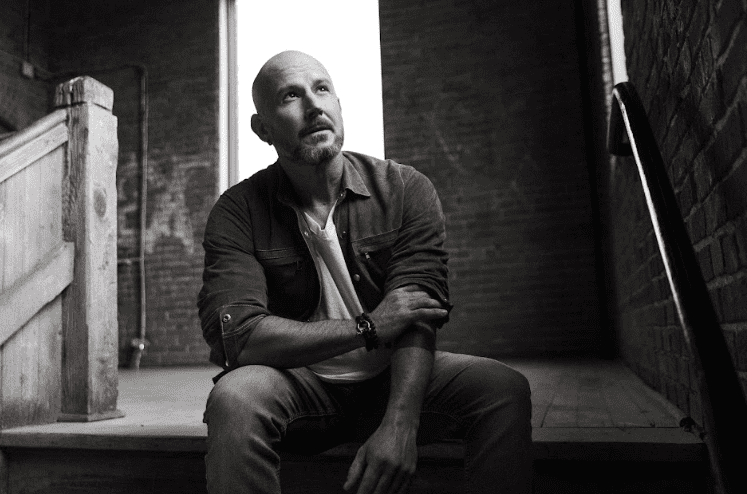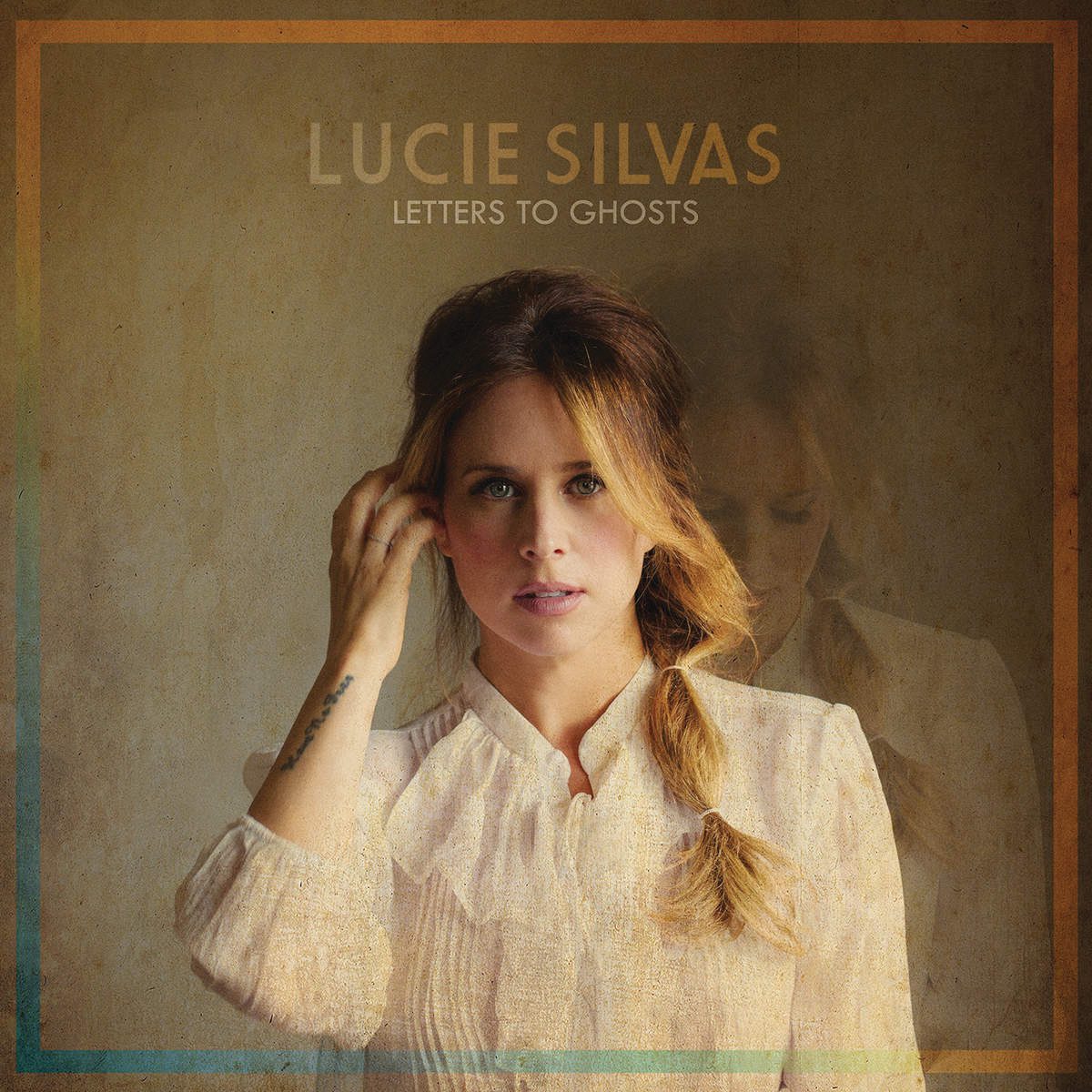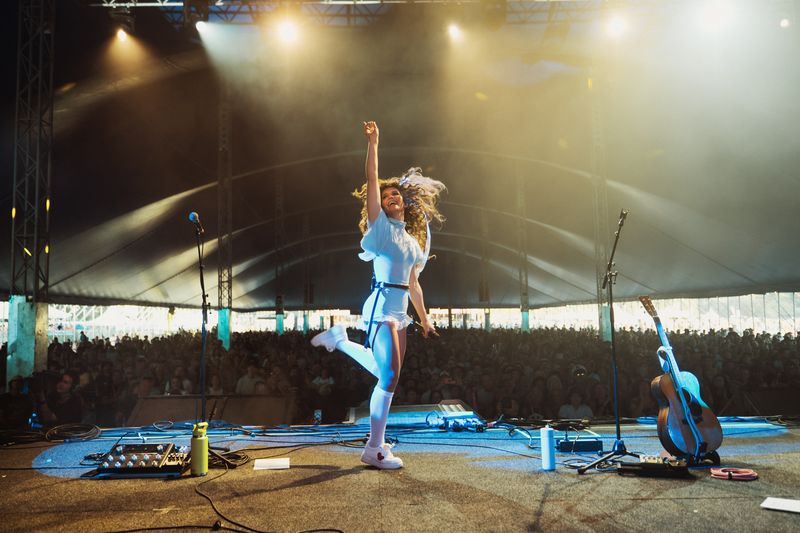
Interview: Lucie Silvas – Another Country
Lucie Silvas writes from the heart, and that can be a pretty dark place, as she tells Teri Saccone.
Fans of singer-songwriter Lucie Silvas can be assured that pretty much everything you need to know about her can be found in her wonderfully-crafted lyrics and music. Yet there is, of course, more to her than songs so we won’t deprive you of an interview.
Before we get to that, however, we should mention that Silvas is in fact inextricably linked personality-wise to her music, and there is no pretence surrounding her. She’s as open, sweet, yet razor-sharp, as her lyrics suggest. Furthermore, Silvas is exceedingly bright and personable.
For the release of her long-awaited third album Letters to Ghosts, Lucie returned to the UK (where she was born, she was raised for a time in New Zealand) to discuss her career, the ever-evolving music industry and the sweet life she has built in Nashville. Letters to Ghosts follows two prior studio forays for the Tennessee-based artist: Breathe In (2004) and The Same Side (2006).
Her music may not be traditional country but she does embrace gospel, soul and rock within her palette.
Technicolour Presence
The prime motivator behind Silvas’ latest album (released Stateside earlier this year) was a past relationship which ended before her marriage to country guitarist John Osborne (he of Brothers Osborne). Letters to Ghosts’ lyrics reveal the dark and sometimes ugly side of break-ups. The pain is palpable within the tracks, whether the vibe is ballsy or sad, as Silvas is never beige: she’s always a technicolour presence.
Says Lucie: “I wrote the album in the wake of the ending of a big relationship, and it was in the healing process of it that I realised the many things I had done wrong and the flaws I had. Until you’re ready to let go and start over, you’re in a holding pattern that won’t let you move forward. This album is the essence of that: of trying to move on, facing who you are, and changing too.

Roots is a prime example on the album, glistening with that pure emotion Lucie purveys. According to her, Roots was “Especially cathartic because that plagued me for so long; so the whole letting go of the past part was liberating. Writing can be such a learning curve for my emotions. I was talking myself out of a storm. I still have trouble singing that one sometimes, as it feels more poignant to me than most.”
Roy Orbison
Another provocative cut off LTG is Silvas’ audaciously unique take on the Roy Orbison classic You Got It.“My parents used to play Roy Orbison a lot when I was a kid and I have always thought this to be the most perfect song. The recording is one of my favourite sounding records ever made. So I couldn’t just cover it in the same way or even attempt to live up to such a powerful original.
I made it my own by bringing it to its simplest form: not much instrumentation, just piano and an electric guitar, and the vocals. The lyrics reflect the feeling of finding the kind of love that makes you feel so levelled and understood. I found that when I met John, and this recording is for him.”
Inspired Performance
Furthermore, her inspired vocal performance on Smoke proves that Lucie’s is a voice to be reckoned with. LTG is a good introduction for those unfamiliar with Silvas, as it contains a solid array of tunes with some very strong songwriting.
Silvas grew up partly in New Zealand, where her father is from. Her mother is Scottish and was a budding singer but came from a strict Christian family who discouraged anything except classical singing. “And my dad is Jewish,” she tells us, “so I had a mixed upbringing both culturally and musically.”
Lucie left London, relocating to Nashville, almost a decade ago. It wasn’t planned. Basically, an old English friend lured her there. “My dear childhood friend John Green, who I’ve known since we were 14, suggested it to me in 2007. We had a band as kids. He asked me to come and check it out and he said I’d meet great people – and the first time I was there I met people I’m still friends with today. So I went out for a few days but ended up staying five weeks and never saw England in the same way again.”
Intoxicated
“Weirdly enough,” she continues, “the music I’ve always done never made more sense to me until going there, and I fell in love with the place, and I saw people making music in a way that was more inspiring to me, and I was intoxicated by it. Little Big Town, Miranda Lambert and Kacey Musgraves invited me on their tours, so that helped me out.
Living in London I felt like I had to have music or my personal life but not both, as I was travelling and it didn’t work out well. In Nashville, I saw artists who had a normal life and were pursuing their dreams. I want to have a life outside of music too. Being there in Nashville I have both.”
Rootsy Americana
LTG is mired in rootsy Americana with influences including soul and gospel. One track, Shame, embodies more of a Nashville vibe in its instrumentation and style.
But instead of simply appropriating a country flavour, the sound has seeped into Lucie’s lexicon quite organically, not only from her life in Music City but also from growing up with the sounds of Haggard and Cash in her childhood home. We ask her if she thinks that she’s not as commercially-accepted as she might be because she’s not country enough for Nashville?
“It’s been a long road,” she replies. “I just signed the deal with Decca in the UK and doing it on your own independently, as I’ve done, is hard, although a lot of people also do it this way. I always make music that I love and have never worried where it would fit and if it was pop or anything else. I obviously knew it would fall somewhere in between genres.”
Country Artists
“The thing is with country artists, lots of them don’t sound country but because they come from that background they are already country artists in the eyes of the industry. I’m a British artist and yet I’m immersed in the country music scene. I never claimed to be a country artist and always felt I operated outside of that.
“I’ve not gone for that, and this album is something I made as a labour of love, and I’ll see from here if I’ll be ready to put myself more in the middle of country. I’m such an emotional writer that I don’t force stuff and just let music happen naturally. The way I go about things may be harder for others to know where to put me but I’m okay with that. “In fact, you couldn’t really assign strict labels for Jason Isbell, Prince and Dusty [Springfield], as they have sounds that run all over the place.
I don’t think it really matters to be stuck in one place. Maybe for big commercial artists the labelling is more important, but overall my music is not completely pop, alternative or country. “It’s that old saying: there are two kinds of music: good and bad. But Mumford & Sons and Chris Stapleton don’t need labels; they just play great music and people respond to them.”
Married Life
With married life suiting her, a group of tight friends in Nashville, including the aforementioned Kacey Musgraves and Kree Harrison, life is good for Silvas now and she is appreciative of everything she has. “Today, I’m in a different headspace where I’m really enjoying myself. I’m really at home with my music and my life. The people there in Nashville that I know let me be myself.”
But will a contented life make for good lyrical fodder? Silvas lets out a big laugh and then sets us straight: “So many people have said that to me and I do get some of my inspiration from myself but also from others, so I don’t need to be unhappy to write.
I know I have a self-destruct button inside me but I’ve trained myself not to press it. I think a lot of creative people have those, and though this is not a good thing, it is part of that personality to a degree. The great thing about my marriage is that although it’s not perfect I’m able to be myself. Yet I still understand confusion, pain and torment.
Ironically, I probably understand those painful songs better now than I did back when I wrote them. In retrospect, it’s easier to see yourself more clearly. My second album, The Same Side, has a song called Alone. I never knew that I was feeling that way until I wrote that song: ‘You’re the ocean, I’m an island / We’re together but I’m still alone’.”
More Widely-embraced
Does Lucie believe that now is her time to be more widely embraced as an artist? “I’d like to think so,” she answers. “In Nashville, musicians spend their days writing songs, almost as a 9-to-5 business. Silvas has written for other artists and has co-written with others and says that sometimes there is a level of comfort in that partnership which brings out some of her best ideas – ideas that she often jots down and saves for songwriting.
“Sometimes there’s a connection or a chemistry with that co-writer who is often a total stranger in the beginning, and it can happen suddenly and then it feels natural to write together.”
She says that songwriting is not something she coerces. “For me, it’s very mood-based. Some days I’ll know a song will not be meant to be worked on if I’m not in the right mood to work on a particular song. I’m a very emotional writer.”
Performing Live
On the live performance side of things, Lucie will usually sing whilst at the piano or with a mandolin. Live performing is an aspect of her artistry that she adores. “I find that performing is transforming. When I sing live I start out nervous. Frankly, I’m up there terrified but after a minute or two something else takes over and it just takes me to somewhere else. I change. It’s my passion.”
I mention that Linda Ronstadt has said that singers need to practise for eight hours a day to hone their voice. Did Lucie do that? “I don’t think I did do that. Although, if you ask my parents, they’ll say I never shut up and was singing non-stop in the garage, the shower, everywhere. I don’t think I sang all day like Linda did, though.
According to my parents I started at about the age of two or three and I’m sure I drove everyone up the wall with my constant singing or humming. My fave thing to do was to go into the garage when I was about seven years old and sing at the top of my voice. It was a concrete chamber, so it had a huge echo and I would pretend I was singing to thousands of people! I sang Stevie Wonder and Jackson Five songs on a loop.
“These days I do sing before I’m due to go out on stage as it helps to warm up. But I’m not a technical singer as such. I’m most concerned about whether my voice touches people or not. Bob Dylan was like that, so if my voice is not hitting the notes it’s more about how it feels for me, and if I’m not feeling it how will the audience feel it?”
Big-time Popularity
It seems that with a gorgeous new album, a refreshing attitude and the future before her, Lucie Silvas will be courting big-time popularity in no time. But I pose a final question to her before we say farewell: “Whose career would she most covet? It could be a male or female from any genre.”
Silvas thinks for barely a nanosecond before replying: “Someone like Dolly Parton because she’s so respected as a songwriter and has had such a long, varied career. She’s done acting in films, music for films too, and is such a character with such a personality and is just fearless.
She’s very kind but doesn’t take any nonsense either. She’s one of the great trailblazers and amazingly smart. She’s the queen who encapsulates everything I love.”




